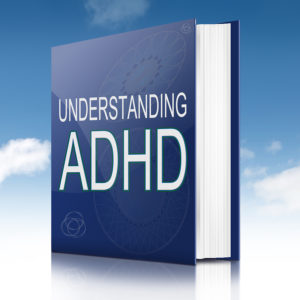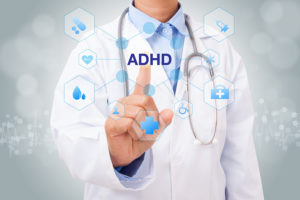Table of Contents
Key Takeaways
- B-Vitamins and multivitamins are crucial for brain health and neurotransmitter synthesis.
- Acetylcholine’s role in ADHD can be supported with nootropics like ALCAR and CDP-Choline.
- Nootropics like Ashwagandha and Bacopa Monnieri help repair damaged neuroreceptors in ADHD.
- Noopept enhances cognition, memory, and provides neuroprotection.
- Combining specific nootropics with essential vitamins can optimize brain function for managing ADHD symptoms.
Depending on the severity of your ADHD symptoms, you may be able to use nootropics as an alternative to prescription stimulants like Adderall, Ritalin, Vyvanse and their variations.
I experimented for a year by using nootropics in place of the 20 mg of Ritalin I had been using 3-times a day for several years. And for the most part, I was successful in taming my Adult ADD symptoms.
Adult ADD Nootropic Stack
The ADD/ADHD stack I use includes:
- Mind Lab Pro
- Performance Lab® Energy – twice per day
- CDP-Choline – twice per day
- ALCAR – 750 mg 1-time per day
- L-Tyrosine – 500 mg 3-times per day
- Sulbutiamine – 400 mg twice per day
- Aniracetam – 750 mg twice per day
- Vinpocetine – 10 mg 3-times per day
- Performance Lab® Omega-3 – 3 GelCaps per day
- 1 tablespoon unrefined Coconut Oil or MCT Oil– 3-times per day
- Performance Lab® NutriGenesis Multi – 4 caps per day
During my one-year stimulant holiday, the ingredients in Mind Lab Pro along with L-Tyrosine, CDP-Choline, and ALCAR (included in Performance Lab Energy) kept my dopamine, norepinephrine, and acetylcholine levels high enough to maintain focus, motivation and improve my memory. Vinpocetine kept my brain blood flow at optimal levels. And Aniracetam and Sulbutiamine improved my mood.
But after a year I decided to go back to using 20 mg of Ritalin twice per day. Because my workload had me writing 10 hours per day. And maintaining working relationships with 2 or 3 clients at once.
By adding Ritalin back to my stack I was able to reduce the time it would take to complete a project from 3 days to 1 ½ days. Proof to me that my overall brain health couldn’t make it with nootropics alone.
The beauty of continuing to use L-Tyrosine, CDP-Choline, and ALCAR even after I started using Ritalin again was that I avoided the stimulant “crash” that is so common late afternoon when using stimulants. And I was able to reduce the original 20 mg Ritalin 3-times per day down to only twice per day.
And I have not experienced building up tolerance to Ritalin that is so common when using stimulants to treat ADD or ADHD.
Your situation may be different, or ADHD symptoms not as severe. Only you can decide if nootropics can replace ADHD meds. The stack I describe on this page is designed to be used with or without stimulant meds.
Whether you use this stack with meds or without, you’ll need to discover for yourself what dosages of each nootropic are ideal for you. Because the amounts that work for me may not work as well for you. You may need less NALT and/or ALCAR.
Experimenting is the key to success with nootropics. And knowing as much as you can about what’s going on in your brain that needs to be fixed. But after many years of recommending this ADHD nootropic stack to people just like us around the world, we know this works.
The pre-made nootropic stacks mentioned in this post include:
Prescription “Smart Drugs” vs. Nootropics for ADHD
This post is in response to many emails and questions I’ve been getting about how to treat Attention Deficit/Hyperactivity Disorder (ADHD) or Attention Deficit Disorder (ADD) with nootropics.
So if you are dealing with ADHD, hopefully this post will help. Especially if you are using stimulants like Ritalin, Adderall, Vyvanse, Focalin, or any of the other stimulant prescribed for ADD/ADHD. Or you are trying to deal with ADHD naturally by avoiding prescription stimulants.
This information can also help if you are a student or executive who uses prescription “smart drugs” like Adderall or Modafinil to boost productivity.
Here we’ll dig into the causes of ADHD or ADD in your brain. Symptoms associated with ADHD. And what you can do using nootropics, or nootropics stacked with stimulants to correct ADHD symptoms.
I’ll also include ways to potentiate the effectiveness of prescription stimulants with nootropics so they work better.
If you’ve never ‘officially’ been diagnosed with ADHD, but some of this resonates with you, you could be ADHD or ADD. And this may point you to some answers.
I’ve been ADD all my life. (ADD is ADHD without the hyperactivity). But it wasn’t until about 16 years ago, that a very wise psychiatrist identified what was going on. And why I had been struggling with focus and other problems with behavior. That no amount of self-help books on focus and management could ever correct.
Ritalin turned the lights on for me. And completely changed my life for the better. This was the seed that sprouted my interest in neuroscience and nootropics. And ultimately launching Nootropics Expert®
What is ADHD & ADD?
Attention Deficit/Hyperactivity Disorder (ADHD) or Attention Deficit Disorder (ADD) are associated with attention and executive function in your brain.
Your prefrontal cortex directs behavior, thought and feeling which are all associated with working memory. This fundamental cognitive function is what most “healthy” people take for granted, are what make up executive function.
This executive function and working memory give you the ability to:
- Regulate your attention
- Inhibit inappropriate behavior and thought
- Monitor your actions
- Plan and organize your future
If you can’t focus on the task at hand, blurt things out at inappropriate times, have little control over your emotions or actions, and can’t seem to stick to that careful set of goals you wrote down, you may be ADHD.
The Role of Norepinephrine and Dopamine in ADHD
Norepinephrine and dopamine are the primary neurotransmitters involved in ADHD because they play an essential role in attention and thinking.[i]
The “inattentive” type of ADHD is related to issues with the norepinephrine, and the “hyperactive and impulsive” type of ADHD is linked to dopamine dysfunction.
These two neurotransmitters work in concert to maintain alertness, increase focus, sustain thought, effort, and motivation. The only difference between the two is the presence of a hydroxyl group. And dopamine is the precursor to norepinephrine synthesis in your brain.[ii]
Much of what we read about ADHD focuses on dopamine’s function in your brain. But norepinephrine (NE) plays a critical role in activating your reaction to events. And how you respond to the event.[iii] NE is essential for collecting information coming in through your senses. And then modulating your brain’s response.
Any disruption in this NE system can result in ADHD, Post Traumatic Stress Disorder (PTSD), sleep disorders and more.[iv]
For example, NE working with postsynaptic α2-adrenoceptors (α2-AR) in your brain play an essential role in helping you focus and eliminate distractions when you’re paying attention to something.[v]
This is just one example of what goes wrong with ADHD brain function. My point in bringing this all up is not to overwhelm you with neuroscience.
But to make clear that simply suggesting too much or too little of a single neurotransmitter like dopamine cannot explain the complexity of ADHD.
So using a nootropic like L-Tyrosine to amp up dopamine in your brain is often not enough to take care of ADHD symptoms. Or using Adderall with someone who has a problem with alpha2-receptor binding with norepinephrine may not get much benefit.
This is the reason that experimenting with various stimulants and/or nootropics is often the only way to find a long-term solution to keeping ADHD under control. And why some respond better to a drug like Ritalin and not as well to Adderall. Or vice versa.[vi]
And recent research shows serotonin and acetylcholine are involved too. Mostly the “hyperactivity” part of ADHD which includes movement, inattention, and impulsivity.[vii]
Smart Drugs Used to Treat ADHD Symptoms
If you are truly and clinically ADHD or ADD, it is unlikely that optimizing your diet, getting plenty of sleep, using nootropics, and exercising regularly will get the symptoms of ADHD under control.
The most severe forms of ADHD often benefit from using prescription medication. Otherwise known as “smart drugs” in some circles, these meds are typically amphetamines or methylphenidate.
The amphetamine-class of ADHD prescription drugs includes Adderall (75% dextroamphetamine salts and 25% levoamphetamine salts), Dextroamphetamine, and Vyvanse (Lisdexamfetamine).
The methylphenidate-class of ADHD medications includes methylphenidate (Ritalin) and its variants like Concerta, and Focalin.
Adderall and Ritalin both work with dopamine and norepinephrine in your brain. But through different mechanisms of action.
Ritalin is a pure uptake inhibitor of dopamine and norepinephrine without any other presynaptic activity.[viii] Adderall on the other hand, has additional presynaptic activity, releasing dopamine and norepinephrine from presynaptic neurons.
The idea for the last 60 years or so, has been if we could boost dopamine and norepinephrine in the brain, ADHD symptoms would go away. As long as we’re taking the medication.
Why Prescription Attention Deficit Hyperactivity Disorder Meds Often Don’t Work
 In an ideal world, taking one pill 2 or 3 times a day to treat ADHD would put your life back on track. And help you function like a ‘normal’ person.
In an ideal world, taking one pill 2 or 3 times a day to treat ADHD would put your life back on track. And help you function like a ‘normal’ person.
But real-world results often don’t work out as well as theory. For several reasons. For example, what if there’s not enough dopamine or norepinephrine in your brain in the first place? Then stimulants will not work as well as planned because they haven’t the neurotransmitters in place to work with.
You could also have problems with not enough or damaged neuroreceptors. Natural aging processes can slow blood flow or inhibit the production of neurotransmitters. A lack of acetylcholine could prevent your neurotransmitters from doing what they were designed to do.
This is where nootropics can help save the day in treating the symptoms of ADHD.
Optimizing Dopamine & Norepinephrine
 One of main culprits contributing to ADHD symptoms is a lack of dopamine (DA) and norepinephrine (NE) in your brain. Or your brain is not using the available DA and NE effectively.
One of main culprits contributing to ADHD symptoms is a lack of dopamine (DA) and norepinephrine (NE) in your brain. Or your brain is not using the available DA and NE effectively.
Stimulants like Adderall and Ritalin work to boost levels and use of these two critical neurotransmitters.
Production of dopamine and norepinephrine in your body and brain follows this metabolic pathway:
Phenylalanine → Tyrosine → L-DOPA → Dopamine → Norepinephrine
Dopamine is converted to norepinephrine by the enzyme dopamine β-monooxygenase, with O2 and ascorbic acid (Vitamin C) as cofactors.
Norepinephrine can be further converted into epinephrine by the enzyme phenylethanolamine N-methyltransferase with SAM-e as cofactor.
Nootropics to boost dopamine and norepinephrine include:
- L-Tyrosine – L-Tyrosine is the precursor to the synthesis of dopamine in your brain. L-Tyrosine enhances working memory, executive function, creative flow states, reduces stress, improves mood and is anti-anxiety.Suggested dosage of L-Tyrosine or NALT for ADHD is 350- 500 mg twice per day. I successfully stack 500 mg of NALT or L-Tyrosine 3-times per day. Once each time I dose with Ritalin, and a last dose mid-afternoon to prevent a stimulant crash later in the day.
- Mucuna Pruriens (L-Dopa) – Mucuna works as an antioxidant and heavy metal chelator, improves memory & cognition, reduces depression and boosts libido.L-Dopa is also the direct precursor to dopamine. Suggested dosage of Mucuna Pruriens is 250 – 500 mg per day. But if you’re just starting out with nootropics, I highly recommend using L-Tyrosine or NALT instead of Mucuna Pruriens. Because Mucuna can be more difficult to dose since it directly stimulates the production of dopamine. L-Tyrosine and NALT are more ‘forgiving’ when it comes to dosage.
- N-Acetyl L-Cysteine (NAC) – NAC is an amino acid that regulates the amount of glutamate and dopamine in your brain.NAC can be used to address the symptoms of ADHD. And may even help eliminate some of the negative side effects associated with prescription ADHD stimulants. Suggested dosage of NAC is 600 mg 3-times per day.
- Phosphatidylserine (PS) – PS can help improve alertness, attention, cognition, memory, recall and mood, and lower anxiety. All issues associated with ADHD.Phosphatidylserine is a phospholipid component of the membrane encasing every one of your brain cells. PS helps maintain the fluidity and permeability of brain cells. Improving the flow of dopamine and acetylcholine. Suggested dosage of PS is 100 mg 3-times per day.
- Pine Bark Extract – Pine Bark extract helps prevent decreases in dopamine and norepinephrine. And the glutathione (GSH) and GSH-disulphide reductase (GSSG-R) ratio. Neurotransmitter problems which contribute to hyperactivity in ADHD.Pine Bark extract also helps boost blood flow in the brain by increasing nitric oxide which helps dilate blood vessels. And it helps reduce oxidative stress, membrane damage, DNA damage, inflammation, and glycation.I’ve found one of the most potent forms of Pine Bark extract comes in both Mind Lab Pro® and Performance Lab® Mind.
A word of caution here in boosting the catecholamines dopamine and norepinephrine. Too much of either is not a good thing. In fact, excess levels of either will throw your neurotransmitter levels out of balance. And can cause anxiety, insomnia and panic attacks.
Taming Hyperactivity with Nootropic Supplements
The “H” in ADHD stands for hyperactivity. Boosting levels of dopamine and norepinephrine can help balance out hyperactivity. And help calm and focus your mind. But often simply boosting or balancing these neurotransmitters is not enough.
Recent studies show that serotonin and dopamine interaction also play a role in ADHD.[ix] Serotonin is involved in the uptake, synthesis and breakdown of dopamine in your brain. Problems with serotonin seem to contribute to behavior and impulse control.
Much more research needs to be done in this area of ADHD. But we can help control and balance serotonin with nootropics.
- 5-HTP – This amino acid is synthesized from the amino acid tryptophan. And 5-HTP is the immediate precursor to serotonin in your brain.5-HTP can help relieve anxiety and depression, fibromyalgia, insomnia, migraines and likely the hyperactivity, depression and anxiety associated with ADHD. Suggested dosage of 5-HTP is 50 mg up to 3-times per day. Please see my dosage notes and warnings before you try supplementing with 5-HTP.
- Ginseng – Ginseng helps calm anxiety, and boost attention, concentration and memory. Ginseng provides neuro-protective effects on the dopaminergic-pathway which can help with ADHD. And ginseng is a serotonin and norepinephrine reuptake inhibitor (SNRI).Suggested dosage of Ginseng is 100 – 400 mg per day.
- L-Theanine – L-Theanine commonly found in green tea helps boost alpha and theta brain waves, is anti-anxiety, boosts cognition and memory and reduces insomnia.L-Theanine also helps boost GABA, serotonin and dopamine levels in your brain. Suggested dosage of L-Theanine is 150 mg 2 – 3-times per day.
- Rhodiola Rosea – Rhodiola Rosea helps improve alertness, energy, memory and mood, is anti-anxiety and antidepressant, reduces fatigue and boosts memory and concentration.Rhodiola influences serotonin and norepinephrine levels in your brain. Suggested dosage of Rhodiola Rosea extract is 150 – 200 mg per day.
- Saffron – Saffron acts as a dopamine and norepinephrine reuptake inhibitor. Similar to how Ritalin works. A randomized double-blind study was conducted with 54 children 6-17 years old who were given 20 – 30 mg methylphenidate or 20 – 30 mg Saffron per day for 6 weeks. At the end of the study researchers concluded, “Short-term therapy with a saffron capsule showed the same efficacy compared with methylphenidate.”Suggested dosage of Saffron is 30 mg per day.
- Vitamin B6 (Pyridoxine) – Vitamin B6 helps your brain make serotonin, norepinephrine and melatonin. Suggested dosage of B6 is up to 100 mg per day.
- Vitamin B9 (Folate) – Folate (NOT folic acid) as a nootropic helps your brain make dopamine, epinephrine, norepinephrine and serotonin. Suggested dosage of Folate is 400 mcg per day.
- Vitamin B12 (methylcobalamin) – is a cofactor in the synthesis of neurotransmitters acetylcholine, dopamine, GABA, norepinephrine, and serotonin. Suggest dosage of B12 is 100 mcg per day.
B-Vitamins are Critical in Controlling ADHD
Take note that several of the B-Vitamin group are involved in the production of the neurotransmitters involved in ADHD. I recommend adding a good B-Vitamin Complex that include methylfolate (not folic acid) and methylcobalamin (not cyanocobalamin) to your stack. Both in a pure nootropic stack as well as when using any of the ADHD prescription stimulants.
But it’s not only the B-Vitamins that are required for a healthy, fully functioning brain. We also need each of the 13 vitamins and 13 minerals needed for everything from blood flow, neurotransmitter synthesis and release, brain signaling, and neuroprotection.
I’ve found the easiest way to make sure my ADD brain gets all the vitamins and minerals it needs every day is to also use a multivitamin/mineral supplement.
The best I’ve found so far is the multivitamin called Performance Lab® NutriGenesis Multi. It’s better than the “raw-food” multi I was using for years. And makes a difference I can actually feel.
But please note that this multi is in addition to a B-Vitamin Complex because the ADHD brain needs more of these critical nutrients than what is normally in any good multivitamin.
The Role of Acetylcholine in ADHD
Researchers at Vanderbilt University Medical Center discovered that there are three types of ADHD.
We’ve already covered the “inattentive” type that is related to issues with the norepinephrine transporter gene. And the link to the dopamine transporter gene in the “hyperactive and impulsive” type.
But the research team now report that a variation in the choline transporter gene is associated with a “combined” type of ADHD. Symptoms include both inattention and hyperactivity/impulsivity.
Choline is required to synthesize acetylcholine (ACh) which is needed for memory, motor-control, focus, learning, concentration, and cognition.
If you have the “combined” type of ADHD it’s likely due to a mutation in this choline transporter gene variation.
Nootropics to boost acetylcholine include:
- ALCAR (Acetyl-L-Carnitine) – ALCAR donates a methyl group in the presence of Coenzyme-A for the synthesis of acetylcholine. And it’s also a shuttle transport for fatty acids through brain cell membranes. It shuttles fatty acids into mitochondria for ATP synthesis, and shuttles toxic byproducts out.
Research from the Linus Pauling Institute shows ALCAR will restore mitochondrial function, replenish age-related changes to mitochondrial structure, and helps replenish acetylcholine levels to your brain and body.
And other studies show that ALCAR stimulates nerve growth factor. Helping support survival and growth of neurons. Which is particularly important for the ADHD brain and especially when using prescription stimulants that may be tough on neurons.
- Alpha Lipoic Acid (R-LA) – Alpha Lipoic Acid increases acetylcholine production by activation of choline acetyltransferase and increases glucose uptake. This process supplies more Acetyl-CoA for the production of acetylcholine.
Alpha Lipoic Acid enhances insulin-stimulated glucose transport and metabolism for better brain cell performance. And R-Lipoic Acid provides strong antioxidant support because it helps regenerate and recycle existing antioxidants in your brain including Vitamins C & E, glutathione, and CoQ10.
I’ve since switched the ALCAR supplement in my ADD stack to Performance Lab® Energy because this pre-formulated energy stack contains my preferred dose of ALCAR. But note that I also take another 500 mg of ALCAR with L-Tyrosine late afternoon to prevent a stimulant crash.
Performance Lab® Energy also contains Alpha Lipoic Acid and ALCAR which helps my ADD brain produce acetylcholine.
- CDP-Choline (Citicoline) – Citicoline helps synthesize phosphatidylcholine (PC), a major phospholipid found in brain cell membranes. And provides choline for the synthesis of acetylcholine while providing antioxidant activity.
The CDP-Choline (Citicoline) in my ADD stack is supplied by Mind Lab Pro® which is the base of my nootropic stack.
But a suitable alternative to MLP is Performance Lab® Mind which contains the branded form of citicoline called Cognizin®.
Performance Lab® Mind and Mind Lab Pro® also contain L-Tyrosine, Phosphatidylserine (PS), and Maritime Pine Bark extract.
Repairing Neuroreceptors Needed to Control ADHD
One of the issues with neurotransmitters and ADHD are damaged or non-existent receptors. Dopamine, norepinephrine and serotonin have less receptors to bind to for cognition and mood control.
Once again, nootropics come to the rescue in helping control ADHD. You can add one of these nootropics to your stack to help boost neuron and receptor health.
- Ashwagandha – This adaptogen, Ashwagandha helps reduce anxiety and depression. And helps reconstruct axons, dendrites and synapses involved in neurotransmitter signaling in your brain.Suggested dosage of Ashwagandha extract is 250 – 500 mg per day.
- Bacopa Monnieri – Bacopa helps boost memory and cognition, improves mood, and reduces stress. This adaptogen affects brain levels of acetylcholine needed for neurotransmitter signaling.And the two active components of Bacopa Monnieri called bacosides A and B not only improves signaling of electrical impulses between neurons in your brain. Bacosides also help rebuild damaged neurons. Suggested dosage of Bacopa is up to 450 mg per day.
- Lion’s Mane – Lion’s Mane Mushroom is known for stimulating Nerve Growth Factor, improving cognition and memory, and relieving depression.Lion’s Mane stimulates the repair and creation of neurons in your brain. Neurons needed for dopamine and norepinephrine to control ADHD. Suggested dosage of Lion’s Mane Mushroom starts at 500 mg per day. Note: that there’s an effective 500 mg dose of Lion’s Mane full-spectrum fruiting body in each dose of Mind Lab Pro®
- Noopept – Noopept helps boost cognition, memory, learning, perception, logical thinking and mood. Noopept increases Nerve Growth Factor, and Brain-Derived Neurotrophic Factor (BDNF) critical for neuroplasticity and Long-Term Potentiation critical for long-term memory.Noopept also prevents the release of excess glutamate in your brain. Providing potent neuroprotection for neurons and reducing damage. Suggested dosage of Noopept is 10 – 30 mg per day.
Please note that I haven’t linked through to supporting clinical studies for each of the nootropics I listed above. But you can click through to my full review of each nootropic for extensive research supporting each supplement.
Nootropics for Kids
ADHD and ADD is most often diagnosed in children. The latest statistics (2011) from the CDC in the USA shows about 11% of children 4 – 17 years of age (6.4 million) have been diagnosed ADHD.[x] And that’s just for the USA.
Although ADHD is usually first diagnosed in children, it often lasts into adulthood. I sometime wonder how my life would have been different if I had been declared ADD when I was a kid.
But it wasn’t until the late 1960’s that the American Psychiatric Association formally recognized ADHD as a mental health disorder. I wasn’t declared Adult ADD until much later.
The thing is many parents are wary about putting their children on powerful, prescription ADHD meds. Kids’ brains continue to develop until your early 20’s. So is it a problem messing with brain chemistry at such a young age? Only time will tell and if the benefits outweigh any potential risk.
Hence the reason why parents are looking for ‘natural’ alternatives like nootropics to treat ADHD in children. But are nootropic supplements any safer than prescription stimulants?
Common sense tells me that using L-Tyrosine could be safer than Ritalin for boosting dopamine. And Rhodiola Rosea could be safer than stimulants or antidepressants for taming hyperactivity.
But many children with ADHD, natural supplements may not be enough. I’m not a doctor, and don’t even play one on TV. I’m an ordinary biohacker who has learned as much as I can to help myself. And fix my own cognitive performance issues. Including Adult ADD.
So I highly recommend you find and work with an open-minded psychiatrist with your child. You may be pleasantly surprised to find you may be able to reduce or eliminate prescription ADHD meds altogether to enhance cognitive functions. And maybe not. But the long-term health of your child could be worth the time investment to find out.
In Summary
I’ve been wanting to write this post since I started Nootropics Expert®. If you are ADHD or ADD, I hope you found this useful. And I’d appreciate your feedback, and share your experience with treating ADHD with nootropics in the comments section of this post below.
Please share this post with anyone you think would benefit. Including discussions about nootropics for ADHD on reddit or Longecity.
One final note. Neurotransmitter balance is key to taming ADHD. I strongly caution you to take it slow if you’re just starting out with nootropics. Carefully read each of the extended articles in the List of Nootropics you are considering trying.
You need to be careful about side effects, prescription drug interactions, dosages and how your body reacts to each supplement to ensure healthy brain function.
But I’m confident that with careful planning and a long-term commitment, your cognitive enhancement will be just as successful as I have been in living and thriving with my Adult ADD.








Join The Discussion - 851 comments
Melanie
July 27, 2019
Hi David,
Your site has been EXTREMELY helpful, thank you! My 16-year old was diagnosed (unofficially) as ADD this past February. Focalin XR was prescribed (10 mg/day) and it really helped, although he felt the dosage was losing effectiveness by year end. Now that it’s summer he wanted to take a break so we are experimenting with nootropics. My question is, are these supplements natural or synthetic? I worry about interfering with the massive brain remodeling going on in the developing teenage brain. He is taking NALT 350 mg a day and it helps some but any thoughts on complementing with 5 htp or others? He is non hyperactive, inattentive type. Thank you so much for what you do! I am also a Virgo and have been analyzing this thing to death for the last 6 months lol.
David Tomen
July 27, 2019
Melanie, the ADHD nootropic stack described in this post is all natural with the exception of Aniracetam and Sulbutiamine which are not necessary to make this stack work.
It’s designed to work with or without prescription stimulants like Focalin XR. If dosed correctly including the right timing during the day, tolerance to Focalin should not be an issue.
And this stack should be safe for kids but at the lowest recommended dosages. Check with a doctor however if you can find an integrative psychiatrist who understands this stuff.
richard
July 21, 2019
Hello David,
I’ve been using the stack with mixed (generally good!) results. I’m still looking for the right proportions. I just wondered … adding a b-complex on top of multi whole food and mind lap pro? I noticed you don’t seem to do so.
It just seems like a whole lot of B-vitamins.
Did I read it correct; You get everything you need from multi whole food?
But at the bottom you say add a B-complex?
I’m a little confused… a good b complex isn’t cheap. Neither is multi whole food. I just wan’t to make sure I don’t spend money if it’s not needed:)
Thank u so much for all the advice.
David Tomen
July 22, 2019
Richard, I think most people would find that the B-Vitamins in the Whole-Food Multi are adequate. But I find I need the extra B-Vitamins so use a separate B-Complex as well. The B-Complex supplement by Life Extension is the best one out there in my opinion and it’s only about $9 right now on Amazon: https://amzn.to/2XX65Eq
The combo of this B-Complex with the Multi is at the upper limit of dosage but still safe. But only you know if you think you need the extra B-Vitamins.
Prakash
July 12, 2019
Hii david i m 22 yrs old and i m a student i have problem in attention or focusing in my studies ,i am unable to concentrate more than 30minutes , please suggest best nootropic stack for daily use.
And my Next question can i use mind lab pro daily(without cycling)?
Thanks in advance
David Tomen
July 12, 2019
Prakash, you do not need to cycle Mind Lab Pro. I don’t and have been using it everyday for nearly 4 years.
For focus, the nootropic stack described in this post will help. It’s designed to help those with ADD/ADHD which deals with focus problems daily.
Lynn
July 9, 2019
Hi David,
Thank you for all this incredibly helpful information. I’m 41, female, and recently diagnosed with ADHD, anxiety, and depression (on top of hypothyroidism). Prior to these diagnoses, I tried going the “natural” route by stacking bacopa, rhodiola, ashwagandha, L-theanine, lion’s mane, etc., in an effort to improve my moods and focus. Nothing seemed to help. At all. So I finally caved and now I’m trying the Rx route (currently Wellbutrin + Ritalin), as well as slew of vitamin and mineral supplements, and I’m not even sure any of it is helping (other than the Armour Thyroid).
I recently read about NALC and, despite being already overwhelmed with supplements, I just had to try it, so I went ahead and ordered some. Then I found this page while looking for more information about it, and now I’m interested in trying your stack – but I’m having major sticker shock!
Could you please recommend a “lite” version of your ADHD stack, including the vitamins and minerals that should be taken with it? I.e. if your supplements budget was slashed and you were forced to scale down to the essentials, what would you choose? I’m desperate to be feeling and functioning better, but I don’t have several hundred dollars a month to spare on more supplements. So I’m hoping I can start with the essentials and then tweak from there. Thanks 🙂
David Tomen
July 10, 2019
Lynn, the nootropics that must be included in this stack to support ADHD and Ritalin use are; NALT, ALCAR, DHA, B-Complex and a choline source like Alpha GPC or CDP-Choline.
But that’s not going to completely address your anxiety and depression. That’s what Aniracetam and Sulbutiamine are for. But in a pinch start with the others and you should do fine. Add a high quality Multivitamin too if you can.
Lynn
October 7, 2020
Thank you for your suggestions. I am currently deep in a rabbit hole on your site, reading posts about the best nootropics of 2020, best ones for motivation, depression, anxiety, energy, etc… and now I want to try everything.
I’ve already purchased NALT, ALCAR, DHA, B-Complex, and Alpha GPC, which I’m just now starting to experiment with, as well as a whole-food multivitamin. Today I also ordered Pine Bark Extract and Inositol (40:1 myo:d-chiro).
I’ll feel like I’ve got a decent stack going until I read sentences like, “Phosphatidylserine (PS) is arguably one of the most effective and important nootropics we have available today,” and, “Lithium Orotate has become one of the best additions I’ve made to my nootropic stack in years.” And before I know it, I’ve got 50 tabs open trying to research all these things, convinced I’ll be doing myself a great disservice if I don’t take everything that could possibly benefit my brain – while at the same time worrying about possible interactions – until I get overwhelmed and shut down. Which is partly why it took me so long to purchase the nootropics you suggested to me.
I am currently taking 3 grains of Nature-Throid and 150mg Wellbutrin daily. I’ve also been trying Concerta and Vyvanse to see which works better, but both have been inconsistent, in both efficacy and side effects. I worry about possible long-term effects of Wellbutrin and stimulant meds, so I don’t plan on taking them forever.
I’m more interested in the idea of supplements that not only help my brain function optimally in the short term, but also improve its long-term health. I dream of being able to feel good AND get shit done – at the same time, even! Of getting unstuck, living up to my potential, and living life to the fullest.
As someone who also deals with hypothyroidism, ADHD (and all the cognitive impairments that go along with it), and anxiety/depression (which I believe are exacerbated by the ADHD), I’m curious about your full nootropic routine. Is it just the stack you wrote about in this post, plus Lithium Orotate?
What do you think about me adding Inositol to the mix?
What do you think about me starting this nootropics stack while still on Wellbutrin?
Are my fears of lab-created nootropics like Aniracetam and Sulbutiamine unfounded? I resisted Rx meds for years because I tend to shy away from substances not found in nature.
And what are your thoughts on occasionally adding psilocybin mushrooms to the mix, via microdosing and/or full-on trips?
I know this is a lot, so thank you in advance for helping me sort this out!
David Tomen
October 9, 2020
Lynn, here’s a page on what I take which is not entirely accurate because I need to update it. But close enough: https://nootropicsexpert.com/what-i-take/
The nootropic stack described above is tailored to be used with or without stimulant meds including Wellbutrin. Dosages are included but may need to be adjusted a tailored to what your system needs.
If you’ve been using Wellbutrin daily I do not understand your reasoning about other stimulant meds. If you need one all you need to do is support it with this stack and you’ll be fine. And no, you do not need to use Aniracetam and Sulbutiamine to make it work. I use those for depression (which I have not experienced in 13 years). But this stack was designed to also include elements to protect and repair your brain. No matter what it was attacked by. Including stimulants.
I can’t provide any advice on micro-dosing for any number of reasons. Including the other meds you are using. If you are contemplating a “full trip” I highly recommend you quit everything except your thyroid med for two weeks before you do it. Or you could have some very serious problems.
It may save you a lot of time and overwhelm if you just booked a consultation with me.
Richard
July 5, 2019
Dear David,
thank you for the article. I have been reading it over and over and experimented with almost every nootropic here, except for the coconut oil.
But I’m having a hard time figuring out what to take when. I can most def feel the overall difference but not so much adding or leaving this or that substance. I try to listen to my body but sometimes it whispers instead of speaking out loud and … well, I’m just not sure.
Would it look something like this?
The ADD/ADHD stack I use includes:
Mind Lab Pro (breakfast – suggested 2 caps)
Performance Lab® Energy – twice per day (Breakfast & noon – suggested 2 caps /4 in total)
ALCAR – 800 mg 1-time per day (4 pm)
NALT – 800 mg 3-times per day (Breakfast, noon & 4 pm.)
Sulbutiamine – 400 mg twice per day (Breakfast & noon)
Aniracetam – 800 mg twice per day (Breakfast & noon)
Vinpocetine – 10 mg 3-times per day (Breakfast, noon & 4 pm.)
DHA (Omega-3) – 1,000 mg per day (between breakfast and lunch)
1 tablespoon Coconut Oil – 3-times per day
Performance Lab® Whole-Food Multi – twice per day (Breakfast & noon suggested 2 caps /4 total)
I haven’t yet tried the lab energy and used the separate ingredients. But all in all, I think it’s good value and def less hassle)
But it’s still quite expensive, so I guess I’m looking for someone to tell me, yeah, thats how – I do it. I know, listen to your body. But I’d still like to know:)
I have a strange feeling about the coconut oil. Mixed info … Is there another source of fat I could use? Nigella Sativa … I usually do eat but asylum mentioned sometimes it doesn’t all fall together and you need a fat source in there.
If you could point me in the right direction, that would be a major help. That way I can put up a note on fridge. Consider this the foundation and take it from there. I write for a living. I have been blessed with some kind of talent but I could never get it out until I used ritalin (and kratom even. A long time ago even valium helped me to concentrate and sit still. Although it’ll have dampend my creativity.)
I do honestly feel trapped. It feels like it’s in there … I know it is. But I just can’t get it out without the use of any substance. I’m seeing a doctor because I wanted to do this in a structured way that’s sustainable. But it’s taking ages … he’s not keen on the idea of ADHD meds. Which I can understand. His word’s ‘ppl. attribute them with magic power’ (something like that). But If I use it, something that makes sense and sells comes out. When someone else does, who has the same ambitions but the initial spark isn’t there, not much really happens.
Dunno if it makes sense. It’s maybe a bit simplified but thats really what it feels like – and has been proven over and again. I’m just able to structure my day, my work, set my goals, ect. I don’t want to over do it. Just a sate of constructive, productive, healthy, stability.
Or is that to much to ask:)?
Kind regards,
Richard
David Tomen
July 6, 2019
Richard, you are definitely on the right track. The stack described in this post is used by thousands to support ADD or ADHD including when using stimulants. I’ve been using this stack for years and it works.
To rest your mind about Coconut oil: https://nootropicsexpert.com/coconut-mct-oil/
The alternative with different benefits is extra virgin olive oil.
Richard
July 6, 2019
Thanks for the affirmation (is that the right word?)
That means two jars of Lab Energy each month – that’s brutal cash-wise. Maybe I could do one capsule and a separate dose of alcar so that so I can do one month per jar. Or would the make a huge difference? 🙂
David Tomen
July 7, 2019
Richard, the big benefit of Performance Lab Energy is CoQ10 and PQQ which provides mitochondrial support. If you are using it primarily for the ALCAR content then reduce your PL Energy use and increase ALCAR. For example, take a capsule of PL Energy morning and one at noon. And take ALCAR morning, noon and later in the afternoon.
Ana
June 8, 2019
Hi David,
I’m dealing with two problems:
Confused diagnostics ADHD/ADD/Asperger
And
The high price of nootropics in my country.
I’m already taking b complex and magnesium.
How would you adapt your stack if you have to deal with cost issues?
Ana
David Tomen
June 10, 2019
Ana, ADD/ADHD is usually a dopamine and brain signalling issue. At the very least you should be boosting dopamine with L-Tyrosine and increasing brain signalling with Alpha GPC or CDP-Choline with ALCAR.
Ana
July 3, 2019
There is a ratio between alpha gpc and alcar?
David Tomen
July 4, 2019
Ana, there is no ‘ratio’ between these two. It’s whatever dosage works for you based within the recommended dosage of each.
Mustaq
May 20, 2019
Hi David,
First of all, thank you for a wonderful website with so much information on nootropics. I would especially thank you for this post of nootropics for ADHD and would rate this to be the best on the internet. I have repeatedly read the content on the post and have revisited many times to refer.
I have been recently diagnosed with ADHD inattentive type (ADD) and was prescribed with Vyvanse 30 mg. Initially the changes were profound and then quickly within a week got used to 30 mg and was bumped up to 50 mg, Briefly I was put on 70, but I felt as if the meds were not working at all, following this my Doc advised the dosage was high and I am now back on 50mg and feels like a stable dosage.
However, I have been keen on experimenting with nootropics for last two months, and I must admit the journey has been a kind of roller coaster ride. All my life I had suffered from the shortcomings of ADD and then when I knew there is a possible cure and supplements that can improve my life, I couldn’t hold back.
However, I quickly realised no one pill could help me. Everyone is different and especially with ADD/ADHD things get a bit more complicated. I have tried Ashwagandha, mindlab pro, ALCAR, multivit and Omega 3 as a stack with Vyvanse. I usually take the multivit and omega 3 in the night.
I had some heavy allergic reactions in the first week, and with trial and error, I found its ashwagandha which set me into an Allergic reaction and then I had to stop it. ALCAR seems to support the Vyvanse, but I can’t see a big difference I take two caps one in morning and afternoon 450 mg each. I also had sleep issues, most days suffered from poor quality of sleep, again by elimination I figured out that coffee with Vyvanse was contributing to this and have stopped coffee after 11 am, and the sleep pattern has significantly improved.
However, with mindlab pro surprisingly, I felt too calm and relaxed, and the motivation and energy levels dropped significantly to the extent that I felt the Vyvanse did not have any effect. But then it helped me overcome the allergic reactions I had from Ashwagandha. It could be the effect of Bacopa Monnieri.
I found it strange why Mind lab pro will make me sluggish and almost diminish the effects of Vyvanse. So maybe I have to experiment and built my stack, I also feel I may be randomly approaching the dosage and the nootropics and putting the delicate balance out of control. Sometimes the side effects just too much to handle and put the entire day’s productivity off.
Is there a more structured approach you can to advise to this process, please?
Currently, I am thinking on starting the below stack and then look at adding Aniracetam to it please advice how I should approach the process from dosage and adding of supplements in a more structured way so that I can reach the best stack
1. Vyvanse -50 mg
2. ALCAR – 900 mg (morning and afternoon)
3. NALT – 700 mg (morning and afternoon)
4. Choline – 650 mg (morning and afternoon)
5. Multi Vit
6. Omega 3
Regards
Mustaq
David Tomen
May 20, 2019
Mustaq, your suggested stack at the end of your comment should work well to support the use of Vyvanse. But you are correct that “balance” is key and is different for each of us. The two most critical neurotransmitters during the day for you are dopamine and acetylcholine which you are supporting. Keep experimenting until you find the ideal stack for you. You are on the right track so far.
Hawthorn H.
April 27, 2019
Hi, David.
This is a fascinating article, but I admit I’m a bit overwhelmed by the amount of info. I’m new to nootropics but interested in trying them out for what I suspect is inattentive/combo adhd. Mainly trying to improve executive function and brain fog. I have a phobia of whitecoat doctors, so obviously I’m trying to avoid prescription drugs.
As such, right now I’m on St. John’s Wort for chronic depression, which has helped tremendously (even with anxiety somewhat), but it’s also rumored to interact with… everything. Mostly to make other meds less effective, but anything else that also messes with serotonin can lead to serotonin syndrome. I haven’t found good research on what all it’s affecting in my brain besides that. Mostly I know it makes me not suicidal. So do you think any of the nootropics you list here might be a good first try, and safe with SJW? I don’t wanna start with a stack/multiple things at once, due to finances and medical paranoia, but.
Otherwise, I’m just on pumpkin seed oil and B-12 (I’m a vegetarian). Contemplating some omega-3s. Which, did you find that adding omegas had a noticeable effect on your add symptoms?
Thanks for helping everyone out like this. Hope you’re well.
David Tomen
April 27, 2019
Hawthorn, this is exactly how St John’s wort works in your brain: https://nootropicsexpert.com/st-johns-wort/
The protocol in this post on ADHD is designed to support the ADD/ADHD brain with or without the use of prescription stimulants. Very basically this nootropics suggested here boost dopamine, acetylcholine, brain cell signalling, suppress hyperactivity, improve focus and concentration, etc.
Thousands of people with ADHD follow this protocol successfully. Just follow the instructions. If you need more personal help, please book a consultation with me: https://nootropicsexpert.com/personal-consultations/
Hawthorn H.
April 30, 2019
Hi again, thank you kindly for getting back/providing more intel. I’m sorry for my redundant questions! I’ll see about getting started on the regimen. 🙂